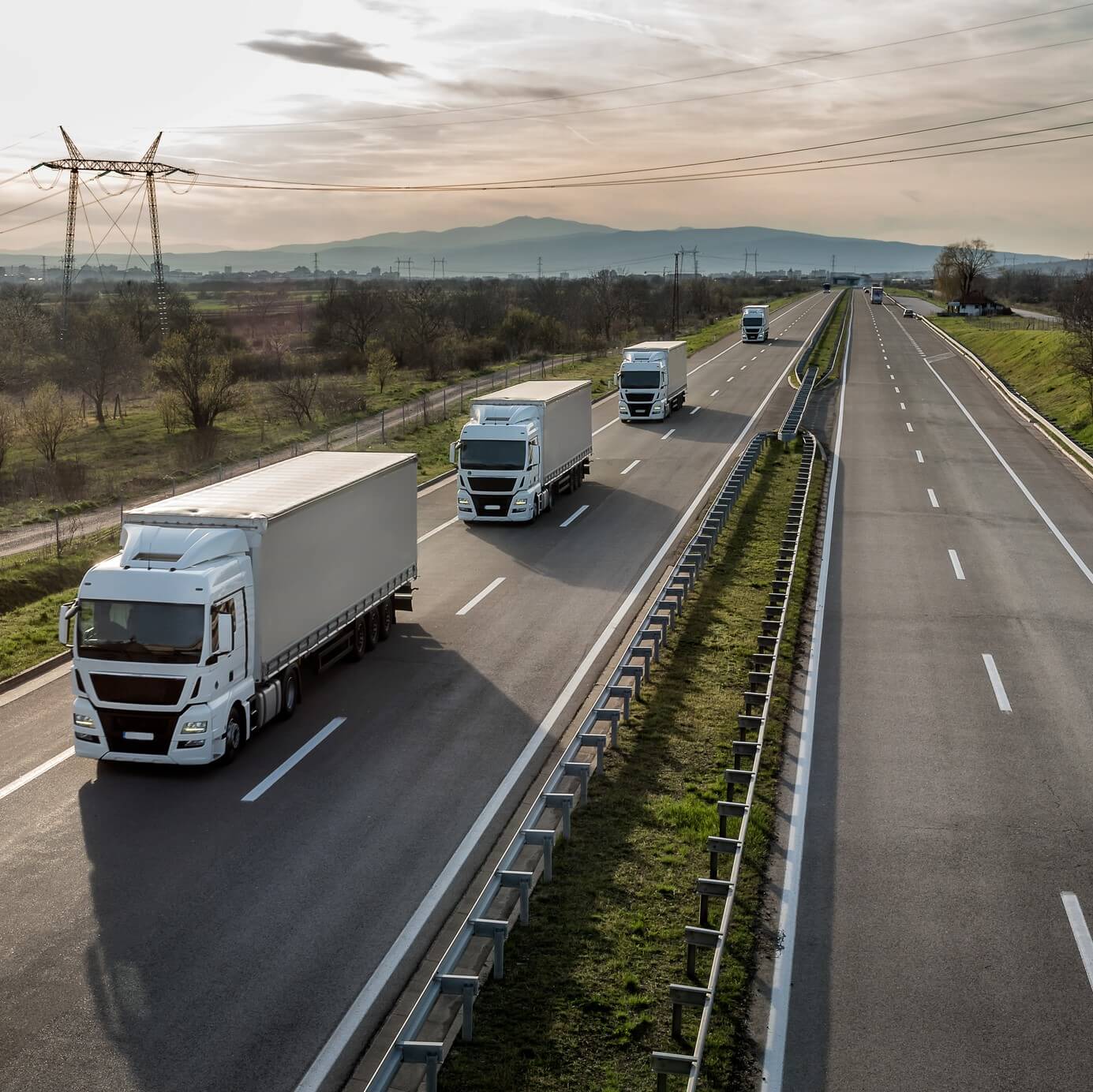Just before 1 a.m. on a Tuesday in June 2023, motorists on I-78 in Northampton County, Pennsylvania, were met with an unexpected sight: containers of orange juice scattered across the highway.
Two tractor-trailers had collided between Applebutter Road and Easton Road, causing a spill that closed lanes and required hours of cleanup. Both truck drivers were transported to St. Luke's University Hospital in Fountain Hill with injuries. While the incident caused significant disruption, fortunately, it wasn't catastrophic.
Now, imagine if those trucks had been carrying hazardous materials instead of orange juice.
Consider an accident in Doylestown where a propane truck tipped over near the intersection of Old Iron Hill Road and Ferry Road. Emergency responders worked diligently to extract the driver, and hazardous materials teams were promptly dispatched to the scene. Although the tanker wasn't leaking, authorities discovered it contained a substantial amount of liquid propane—estimated between 1,800 and 2,000 gallons. This realization led to the evacuation of the entire neighborhood, an operation that lasted until the evening.
In another incident, Interstate 83 in Dauphin County became the site of multiple accidents involving a tractor-trailer carrying cooking oil. While cooking oil might seem benign compared to propane, its spill turned the road into a hazard zone. Subsequent collisions occurred, resulting in hours-long traffic delays, numerous crashes, and the tragic death of a 41-year-old man.
The type of cargo a truck is carrying will directly impact the severity of a collision. In some cases, the cargo itself—if improperly loaded or balanced—may cause a crash.
The Diverse Cargo on Pennsylvania Roads
Located within a day’s drive of about 40% of the country’s population, Pennsylvania is a major player in United States freight. Pennsylvania’s strategic position makes it a bustling hub for the transportation of goods, with its freight system moving hundreds of millions of tons annually. In 2022 alone, nearly 897 million tons of freight valued at $1.1 trillion traversed Pennsylvania's highways, ranking it fifth in the nation for the value of goods moved.
This heavy flow of cargo means that combination trucks—those pulling trailers—are a common sight. They account for approximately 14% of all travel on Pennsylvania's interstate highways and 24% on its rural interstates, placing the state 13th nationwide in terms of truck traffic share. Projections indicate that by 2050, the freight moved by trucks in Pennsylvania will increase by 57% in weight and 98% in value (adjusted for inflation), signaling even busier roads ahead.
Common truck cargo in Pennsylvania includes:
- General Goods: Everyday items such as electronics, clothing, furniture, and both home and office supplies.
- Food & Agricultural Products: This includes fresh produce like fruits and vegetables, packaged foods, and refrigerated or frozen goods, including meats and dairy products. Grains and other raw agricultural commodities also fall under this category.
- Liquids: Beverages such as milk, water, juice, sodas, wine, beer, and spirits—including, of course, orange juice—are frequently transported.
- Chemicals: Trucks often carry a range of chemicals, including industrial agents, fertilizers, cleaning solutions, solvents, and pesticides, which require careful handling due to their potential hazards.
- Hazardous Materials: This category includes flammable liquids like gasoline and diesel, explosives, radioactive substances, corrosive materials, and other toxic or infectious agents that pose significant risks if mishandled.
- Raw Materials: Fundamental to various industries, these include timber, logs, metal ores, scrap metal, coal, and other raw minerals essential for manufacturing and construction.
- Building & Construction Materials: Vital for infrastructure projects, this cargo includes cement, concrete, bricks, tiles, plumbing and electrical supplies, as well as construction equipment.
- Petroleum Products: Beyond crude oil, trucks transport refined products such as gasoline, diesel, jet fuel, and lubricants crucial for keeping industries and vehicles operational.
- Vehicles: Not limited to cars, trucks, or motorcycles, this also involves the transportation of heavy machinery and equipment on specialized auto carriers.
- Livestock: The movement of animals like cattle, poultry, pigs, and sheep requires specialized care to ensure the safety and welfare of the livestock during transit.
- Specialized Goods: Items with specific transportation needs, including medical supplies, pharmaceuticals, high-value goods like artwork or luxury items, and temperature-sensitive products requiring specialized containers.
- Miscellaneous Cargo: Goods that don't fit neatly into other categories, such as waste materials, recyclables, landscaping supplies like mulch or gravel, and bulk items in tanker trucks like grains or liquid sugars.
Each type of cargo presents unique risks. Hazardous materials can lead to fires or toxic spills. Heavy equipment can cause massive destruction upon impact. Even seemingly harmless items, if not properly secured, can become deadly projectiles in a collision.
How Cargo Influences Truck Accident Severity
The type of truck cargo does not only affect the immediate impact of a collision—it can also complicate rescue efforts and escalate secondary accidents. The incidents involving the trucks carrying propane and cooking oil are examples of this. The cargo, depending on its nature, can escalate a bad situation into a dire one. Communities may face evacuations, environmental hazards, property damage, and significant disruptions to daily life. For drivers, these incidents show how unpredictable Pennsylvania’s roadways can be and how important it is to be aware of one’s surroundings, particularly around cargo trucks.
Consider the case of the propane truck crash in Doylestown. Accidents involving hazardous materials like these can unleash fires, explosions, or toxic fumes. Nearby motorists and pedestrians may face immediate threats of injury or even death, while long-term health risks due to exposure are also a concern. Truck drivers themselves are at risk of harm from the collision and subsequent exposure. Communities may grapple with the aftermath for days or longer, dealing with large-scale evacuations, business disruptions, and prolonged environmental repercussions if toxins contaminate the area.
Similarly, trucks transporting liquid cargo like milk or oil (or even orange juice) may seem less hazardous, but spills can turn roadways into dangerously slippery surfaces, leading to secondary accidents—much like the collisions that occurred on Interstate 83. These spills can also infiltrate local waterways, posing ecological threats.
The danger escalates when trucks are loaded with heavy or oversized goods. In a collision, these bulky items can become deadly projectiles. There's also the risk of the truck tipping over due to the sheer weight and imbalance, especially if the cargo shifts suddenly. Trucks carrying sharp objects, such as nails, present additional hazards—they can puncture tires or cause direct harm to those involved in a crash. In accidents with trucks that are transporting other vehicles, dislodged cars can result in further damage and injury.
The type of cargo can also influence how a truck handles on the road. Unbalanced or improperly secured loads can cause rollovers or make it difficult for the driver to control the vehicle during sudden stops.
Liability & Proper Cargo Handling
In the aftermath of a trucking accident, determining liability can become complex, especially when cargo plays a significant role.
Multiple parties may be held responsible, including:
- Truck drivers for failing to inspect and secure the load properly
- Loading companies for failing to adhere to safety protocols during loading
- Trucking companies for inadequate training or pushing unrealistic delivery schedules
- Manufacturers for faulty equipment that led to cargo mishandling
Federal and state regulations mandate strict guidelines for cargo securement, but violations are not uncommon. Negligence in following these regulations not only endangers lives but also opens the door to legal accountability.
We're Here to Help
At Handler, Henning & Rosenberg, we understand the devastating impact that trucking accidents can have on victims and their families. Since 1922, our dedicated team has fought tirelessly for the rights of those injured due to negligence on Pennsylvania's roads.
If you or a loved one has been affected by a trucking accident, especially one where cargo played a significant role, you don't have to navigate this complex situation alone. Our experienced truck accident attorneys can thoroughly investigate the incident, identify all liable parties, and fight to secure the compensation you need to rebuild your life. With offices in Harrisburg, Hanover, Carlisle, York, Lancaster, and Schuylkill County, we're ready to stand by your side. We work on a contingency fee basis, so you won't owe us anything unless we win your case.
Your recovery is our mission. Trust in our century-long commitment to justice and let us help you move forward. Contact us today at (888) 498-3023 for a free consultation.


